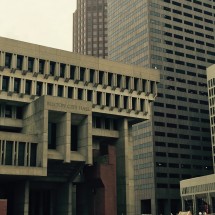Law Offices of John P. Connell, P.C.: A recent 12-1 Boston City Council vote seeks to empower the City of Boston to determine how many liquor licenses are issued and to allow local appointment of Boston Licensing Board members.
In every city and town in Massachusetts, except the City of Boston, the number of liquor licenses each municipality is allowed to grant is based upon that municipality’s population. For an on-premise license, a municipality can issue one license per 1,000 residents. For an off-premise license, a municipality can issue one license per 5,000 residents. Regardless of population, a city or town can grant two off-premise licenses and fourteen on-premise licenses. Once a city or town’s population growth exceeds certain population thresholds, it is entitled to issue additional licenses.
Yet the number of liquor licenses in Boston is hard capped pursuant to Massachusetts General Law, M.G.L. c. 138, § 17. According to this law, the City of Boston may only issue up to 692 on-premise licenses, to be reduced to 650 as licenses are extinguished, and may only issue up to 250 off-premise licenses. Only few exceptions to this statutory cap exist: the City may issue up to 55 additional licenses in areas designated by the Boston Redevelopment Authority and the City may issue licenses in passenger areas of the Logan International Airport, provided that these licenses are not transferred outside of the airport.
Local officials throughout Massachusetts, in addition to the City of Boston, view the statutorily imposed limitations on the issuance of new liquor licenses as hindering economic development. Accordingly, the Cities of Boston, Salem and Somerville have all recently supported so-called “home-rule legislation” that would enable local officials to set the number of licenses to be issued in their municipalities.
The Boston City Council recently voted to approve the home-rule legislation, so the petition will shortly land on the desk of newly elected mayor Marty Walsh. The Dorchester Reporter quoted Marty Walsh as supporting the home-rule petition during his candidacy. Should Marty Walsh sign off on the home-rule petition, the next step will be to gain the approval of State Legislature.
Under home-rule legislation, the statutory cap on the number of on-premise licenses to be issued will be removed. The cap on the number of off-premise licenses to be issued, however, will remain in enforcement. Additionally, all licenses issued in the future will remain tied to the businesses holding them, rather than to the physical locations at which the licenses were utilized at. This means that licenses will be “restricted” and will return to the City of Boston’s possession upon the termination of the business entity. This will have an affect on the resale market for licenses; no longer will businesses be able to demand a hundred thousand dollar figure for the sale of their license as they do now. The goal is to decrease high entry costs for businesses and thereby increase the number of restaurants operating in Boston, without increasing the number of package stores already in existence.
CONTRIBUTED BY COURTNEY N. McGEE
© Law Offices of John P. Connell, P.C.

